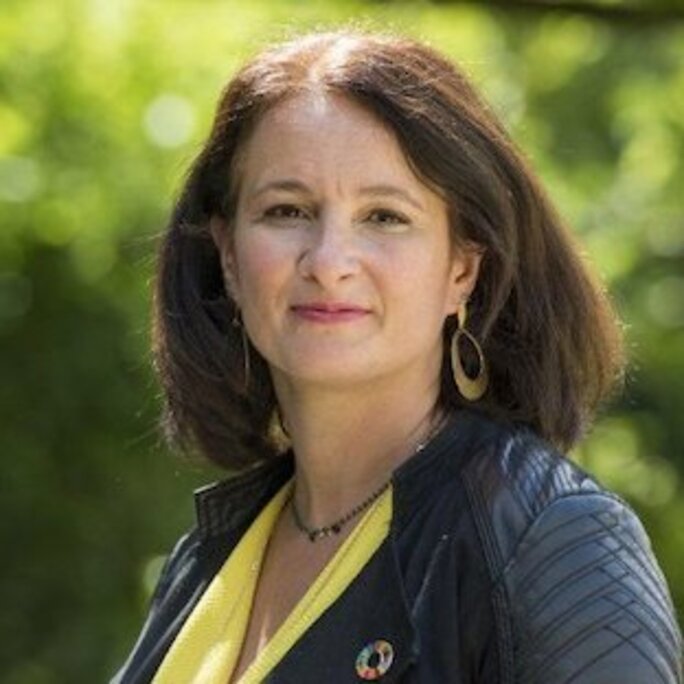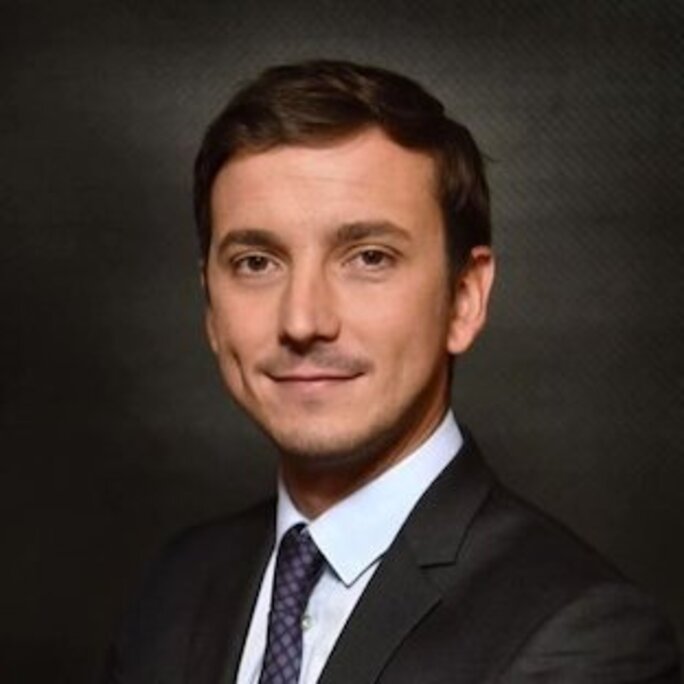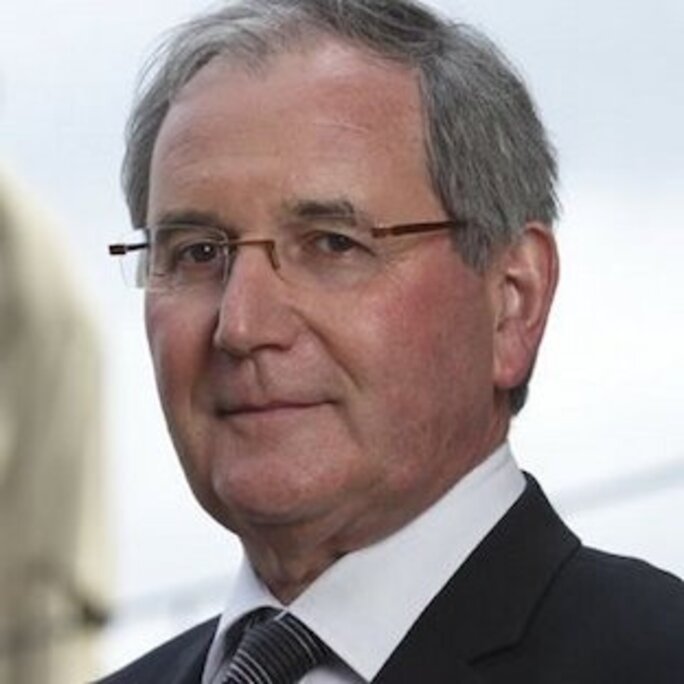They were with Emmanuel Macron in 2017, standing at his side on the light-blue campaign posters for that year's Parliamentary elections. The majority of them were entering the National Assembly for the first time. Some had already held positions within the Socialist Party (PS) or had been an elected representative of that party, while others had become involved in politics for the first time. All had chosen to join Emmanuel Macron's La République en Marche (LREM) party, convinced by the promises made by the presidential candidate who was elected head of state that year. And all became disenchanted.
One by one, some quite soon, others much later, they quit the ranks of the ruling LREM party to join other Parliamentary groups, sit as independents or set up their own movement. Around thirty have taken this path since 2017. Indeed, such has been the exodus of MPs that LREM has now lost its absolute majority in the National Assembly. A year away from the presidential election of 2022 and the next Parliamentary elections, none of these thirty have yet made a final decision. But the majority of them agree that they will never again be lending their support to Emmanuel Macron.
To understand the reasons that drove these early supporters of Emmanuel Macron to move into opposition, Mediapart asked a number of these MPs two questions:
- Why did you vote for Emmanuel Macron in 2017?
- Why won't you vote for Emmanuel Macron again in 2022?
Their replies, which range from disillusionment to disgust, say a great deal about the way that Emmanuel Macron has exercised power over the last four years. he stands accused of adopting a vertical, top-down approach to governing, of lying, and of abandoning his commitments. These responses describe the gradual collapse of a rickety political project which many have eventually come to realise was only ever little more than a subset of the conservative Right.
Frédérique Dumas, MP for the Hauts-de-Seine département or county in the Paris region, now standing under the label 'Libertés et territoires'.

Mediapart: Why did you vote for Emmanuel Macron in 2017?
F.D.: Because I thought that he would represent my ideals. I wrote this in 2016:
“Because he has the courage to be himself, to be free, and to invite us to be free too, to put an end to the automatic submission to the political majority to which you belong - whatever it says, whatever it does - to put an end to electoral pacts which are made to the detriment of consistency and trust. Emmanuel Macron has the strength and determination to bring us together in all our differences to help in the profound transformation of our world, with the determination to leave no one by the side of the road. He restores hope to each one of us by offering to trust us. Emmanuel Macron is appealing to the best within us, wherever we come from, whoever we may be.”
Mediapart: Why won't you vote for Emmanuel Macron again in 2022?
F.D.: Because I see this presidency as a profound betrayal of all that I believe. A betrayal of what was contained in the promise of “at the same time” [editor's note, Macron's trademark phrase en même temps has come to represent the way he seeks to reconcile opposing views] which, in the end, just aims to blur lines and normalise the unacceptable.
Because Emmanuel Macron is a powerful software, capable of analysing thousands of facts in a few hours but, just as an algorithm lacks the moderating effect of humans, he rejects everything that feeds off individuality, experience and the lessons of what people have gone through. A software which is completely ill-suited to times of crisis.
Because by deciding to “just make it through” he preferred to dismiss epidemiologists as incompetent and lied to us [editor's note, during his handling of the Covid crisis and in particular his reluctance to order a third lockdown this winter and spring, gambling that the number of cases would go down]. Because having described culture as a “non essential” activity, he refuses to see the consequences of cancelling what are described as “non vital” [procedures] in hospital.
Because in the face of the evidence, and with his back to the wall, he has said that he will offer no “mea culpa”.
Because he is ready to manipulate anything to justify the unjustifiable. Because he keeps using the “nudge” technique, the manipulation of our own cognitive bias to try and subjugate us to his will rather than appealing to the best in us.
Because in Africa, which is close to my heart, and elsewhere he supports the insupportable.
Because he has systematically jeopardised our freedoms while still not offering effective proposals in terms of security and protection for French women and men.
Because he and Alexis Kohler, the secretary general at the Elysée [editor's note, Macron's chief of staff], have permanently seized all the levers of power and destroyed every counter-power. Because they symbolise the complete absence of exemplarity at the highest level of the state. Because they live in the set of a theatre play that they alone stage, and the reality of the daily world only reaches them in snippets, when it's too late.
Because Emmanuel Macron is both the captain of the Titanic and Agent Smith in the Matrix.
- Hubert Julien-Laferrière, who now sits as an unaffiliated MP in the Rhône département in eastern France.

Mediapart: Why did you vote for Emmanuel Macron in 2017?
H.J-F.: I voted for Emmanuel Macron in 2017 because I believed in the stated objectives of renewing our democracy, of environmental transition, of reducing social inequalities, regional inequalities and inequalities in terms of people's future prospects. The previous presidency [editor's note, under President François Hollande] left the Socialist Party in tatters and it was the manifesto of En Marche! that I felt closest to at the time.
Mediapart: Why won't you vote for Emmanuel Macron again in 2022?
H.J-F.: For exactly the same reasons that made me vote for him in 2017! I haven't changed my convictions, I continue to fight for what I fought for in 2017. It's the government and the ruling majority which have moved away from the initial promises and drifted to the right. As [Winston] Churchill said: “Some men change their party for the sake of their principles; others their principles for the sake of their party.”
On the renewal of our democracy, we haven't got away from the excesses of the Fifth Republic, quite the contrary. The government has probably never been so top-down and it's clear that this presidency has contributed to the weakening of Parliament. It wasn't exactly an accident that I left just after the use of 49-3 [editor's note, an article of the French Constitution that allows a government to force through a measure without a Parliamentary vote] on pension reforms.
On environmental transition, the departure of [environment minister] Nicolas Hulot [editor's note, he quit in August 2018] should have served as enough as a symbol of the serious backsliding on the subject. And the extension of the use of glyphosate and the renewed authorisation of neonicotinoids are a disastrous step backwards for biodiversity. On the issue of reducing inequalities socially, locally and in terms of people's futures, things aren't working there either. We're still waiting for “social” action from the executive and I think my colleagues who have remained in the majority [party] will be waiting for it for a long time.
If Emmanuel Macron and the government want to pursue right-wing - and in reality quite conservative - politics then they should acknowledge that and do it, but I can't identify with that course. On top of that, it has to be pointed out that the ruling majority lacks the ability to “change the software” to be able to adapt to the issues confronting us.
We see that painfully exposed today on health questions, and unfortunately we'll probably see it tomorrow on climate and environmental questions. We have a critical need to reinvent ourselves, to be able to build a more resilient world and one that is also less unequal. This will take place through a major reshaping of our societies and, in particular, through the departure of a certain number of economic dogmas. I don't believe that the president of the Republic and the current majority are up to the level of change that will enable us to once again look to the future with hope.
Jennifer De Temmerman, an MP for the Nord département in northern France, now standing under the label Libertés et Territoires.

Mediapart: Why did you vote for Emmanuel Macron in 2017?
J.D-T.: In 2017 Emmanuel Macron was offering a bold plan, to renew the way the political classes operated, to bypass divisions and listen to all good ideas wherever they came from, solely in the common interest. He highlighted the need for a balance between the three elements of sustainable development: economic, environmental and social. At least, that's what I saw in his manifesto.
Mediapart: Why won't you vote for Emmanuel Macron again in 2022?
J.D-T.: Today I can only point out that it turned out to be just a major public relations exercise to which many French people have fallen victim. There is no balance in the way the president operates. The economy is the only thing that gets favoured. The proposed social and environmental measures are cosmetic and the [Parliamentary] examination of the proposed law on [the climate] is one big charade. In practice the ruling majority doesn't listen to others even when the ideas are good. What we see sometimes is a form of “pillaging”. How many law proposals rejected during a sitting are then discreetly picked up again by LREM MPs?
Inside the LREM, from what I saw, there are threats, people are made to feel guilty, slapped down and treated like children. What Emmanuel Macron needed was cannon fodder for the pseudo-war he always seems to yearn for. How often does he use the vocabulary of war? He seems to take pleasure in managing the crisis and his defence council … In the first vote in 2022 I will not vote for Macron [editor's note, after the first round of voting in a presidential election the two candidates with the most votes go through to the second and decisive round]. In the second round I hope I have a choice [editor's note, in 2017 the choice in the second round was between Macron and far-right leader Marine Le Pen]. I really hope to see the emergence of a candidate who will give us a real democratic choice.
'A drift away from humanism and towards authoritarianism'
- Delphine Bagarry sits as an unaffiliated MP for Alpes-de-Haute-Provence in the south-east of France

Mediapart: Why did you vote for Emmanuel Macron in 2017?
D.B.: I voted on the promise of a democratic renewal with new faces (elected representatives) and new practices (the involvement of citizens in political decisions, taking Parliament's views into account). Emmanuel Macron had been a minister under [socialist president] François Hollande and for me that was a kind of 'left-wing' guarantee. He promised to pursue humanist and social policies without curbing a de facto liberal economic system. He portrayed himself as the future president of “on the other hand...”, highlighting social and societal issues, with great attention to the climate and environmental challenge, the leading and most pressing challenge of our time.
Mediapart: Why won't you vote for Emmanuel Macron again in 2022?
D.B.: In fact he's a man of the Right, and I won't vote for a man of the Right, except when it involves blocking the far right as part of a Republican Front. I really hope that in 2022 we will have a candidate who can represent a strong, humanist, feminist and truly environmental stance. As far as I'm concerned that won't be Emmanuel Macon because he has not renewed democratic practices as he had committed to doing, and he did not bring in the politics of co-construction. On the contrary, intermediary bodies [editor's note, in France the 'corps intermédiaires' are groups such as political parties, trade unions, associations, chambers of commerce and so on] and Parliament have constantly been treated with contempt, and hyper-presidentialism [editor's note, the notion of an omnipresent and dominant presidency] has been reinforced.
The finance laws were only passed as a reaction to events, as the health crisis has shown. Social issues have been put on the back burner and have never been considered to be urgent. Societal issues have not progressed and still struggle to make it onto the agenda – that's the case with assisted reproductive technology and end of life issues – while all the laws on economic liberalism have quickly been adopted. There was no environmental revolution. On the other hand, we have seen a drift towards non-humanism and authoritarianism, with the law on immigration and the anti-rioter law.
Aurélien Taché, an MP in the Val-d’Oise département, north of Paris and co-president of Nouveaux Démocrates, founded in 2020 by former LREM MPS.

Mediapart: Why did you vote for Emmanuel Macron in 2017?
A.T.: I voted for him because he promised a “democratic revolution”, he insisted that society could take more part in the definition of what was in the general interest and the way it was implemented. I voted for him because he seemed to want to lead from the front in the fight for freedom and for the emancipation of all. Sure, his speeches already had a certain economic aspect to them, but he was also resolutely cosmopolitical and I though I could detect there an anti-authoritarian streak, the polar opposite of Manuel Valls [editor's note, prime minister under Macron's predecessor as president, François Hollande]. That all turned out to be false.
Mediapart: Why won't you vote for Emmanuel Macron again in 2022?
A.T.: I won't vote for Emmanuel Macron again because he today represents the very reason why I left the Socialist Party - less redistribution of wealth. His political realism quickly led him to abandon all genuine attachment to human rights, for example by passing laws that stopped migrants from being welcomed with dignity and that made it easier [editor's note, for the authorities] to use violence on demonstrators. In doing so he continued and accentuated what Manuel Valls had started, while having a style of governing which was even more centralised and technocratic than the latter. In doing so he is sowing the seeds of the national-populism that he claims to be fighting.
Paula Forteza, an unaffiliated MP representing French citizens in Latin America and the Caribbean.

Mediapart: Why did you vote for Emmanuel Macron in 2017?
P.F.: I thought I was was getting involved in a social-democratic party. They talked to us about political liberalism, an open society, innovation.
Mediapart: Why won't you vote for Emmanuel Macron again in 2022?
P.F.: In the end it was just about making room for the conservative Right. We've ended up with a top-down, centralised approach to government, with a narrative which splits and divides rather than unites. We have just been handed technocratic solutions out of touch with reality. It makes me think of a well-known quote from the film by [the French group of comedians] Les Nuls, 'La Cité de la Peur' [Released in English as: “Fear City: A family-style comedy”]: “You can fool a person a thousand times. You can fool a thousand people once. But you can't fool a thousand people a thousand times.”
- Jean-Michel Clément, MP under the label 'Libertés et Territoires' in the Vienne in west central France.

Mediapart: Why did you vote for Emmanuel Macron in 2017?
J-M.C.: Emmanuel Macron was a minister in a government I always supported. Once the president of the Republic [editor's note, François Hollande] had decided not to stand again and after the socialist primary had chosen a rebel [editor's note, former education minister Benoît Hamon] who had used Parliament as a conference platform, it became unbearable for me. Moreover, Emmanuel Macron's project, originally planned for 2022 [editor's note, in other words for the following presidential election], while it needed perfecting, it set out a course which in broad terms was fine with me.
The developing [Marine] Le Pen threat led me, and many other people on the Left, to make a cautious decision, lacking a better option. That's why I supported [Macron] from the first round [in the presidential election]. But the wind changed very quickly! The tone was set from the very first legislation, the [domestic security and fight against terrorism] bill. I did not vote for this bill as I am accustomed to defending freedoms. It was the same afterwards … the shift was already taking place!
Mediapart: Why won't you vote for Emmanuel Macron again in 2022?
J-M.C.: I can never give my support to unabashed right-wing politics, which support the business world. Yet Emmanuel Macron represents that. The top-down approach of the government and its personalised nature no longer have a place in a modern democracy. Denigrating intermediary bodies as he has done is proof that he is comfortable with a liberal vision. Recent events in the pandemic have also proved this character trait. Like others, I feel that I was duped and I no longer want to see him carry out a job which he has shaped in a Bonapartist way, at a time when citizens are calling on him for more respect and to be listened to.
- Fiona Lazaar, who sits as an unaffiliated MP in the Val-d’Oise département north of Paris.

Mediapart: Why did you vote for Emmanuel Macron in 2017?
F.L.: I committed myself to Emmanuel Macron in 2017 because I was convinced by his narrative about bypassing divisions. At the time he was promising to modernise public life by bringing in fresh faces and new ways of doing things. His determination to fight against a preordained view of things and his relaxed vision of secularism were also two promising arguments.
Mediapart: Why won't you vote for Emmanuel Macron again in 2022?
F.L.: I still don't know what position I'll take in 2022. There is still a year left before making a full assessment. In any case I regret that the fight against preordained outcomes was rapidly put on the back-burner, as was the fight against poverty and exclusion. I also regret the tougher line adopted in the politics we have seen, in words but also actions, with legislation such as the law on separatism and the law on global security. But it will have to be evaluated at the right time.
- Sébastien Nadot, an MP under the label Libertés et Territoires in the Haute-Garonne in south-west France.

Mediapart: Why did you vote for Emmanuel Macron in 2017?
S.N.: I voted for Emmanuel Macron in 2017 because of his promise to renew the way politics is done and because he seemed to me to be a reformer. His European outlook was also a a factor in my involvement. He came from a centre-left government [editor's note, under President François Hollande 2012-2017] which certainly failed in many respects but, for me, that brought with it guarantees as to the changes in society that he might bring to bear.
Mediapart: Why won't you vote for Emmanuel Macron again in 2022?
S.N.: Apart from a commitment to Europe – which hasn't been error-free but which others certainly wouldn't have tackled better – the other commitments weren't kept. The flip-flop on constitutional reform, which was destined to repair our democratic system, was an unforgivable error. The mark of a conservative and not a reformer. The bill abandoned over the false pretext of the Benalla affair [editor's note, in which Macron's security advisor Alexandre Benalla was sacked after being filmed beating up protestors] was not in any way up to the level of the challenge.
Because the French democratic system was not repaired, there has still been no response to the 'yellow vest' protesters, the citizens drawn by lot to take part in the Citizens' Convention on the Climate have been manipulated, and the French Parliament has been completely crushed by the executive. In reality, as [editor's note, the president of the French Senate] Gérard Larcher said before me, Emmanuel Macron hasn't got much of a track record to show.
In view of the preceding, I prefer to say why I could vote again for Emmanuel Macron in the second round in 2022. For me this election could be the return match of 2002 [editor's note, when conservative incumbent President Jacques Chirac was up against the head of the far-right Front National Jean-Marie Le Pen, father of Marine Le Pen]. I had voted for Chirac having voted for [socialist candidate Lionel] Jospin in the first round. In what is a more critical situation, Marine Le Pen would be as much a disaster as Jean-Marie Le Pen. Emmanuel Macron would be a conservative the same as Jacques Chirac...
------------------------------------------------------------------------------
- The original French version of this article can be found here.
English version by Michael Streeter


